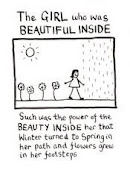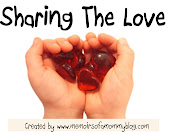If you’ve read my blog a lot in the past you know I like to think back on things and see what effect they’ve had on my life. This is a skill I learned late in life. It was something I had to do for some college classes and believe I’m much the better for having gained it. The process was called reflection.
Reflection has given me lots of awareness on how things affect others too. When I was a child I didn’t spend time analyzing other people’s actions or emotions until it affected me and then it was usually a frenzy of trying to look at why they did or said whatever it was that had hurt me so badly. That’s not socially helpful, but it let me express my angst till I’d owned it and come to a better understanding of the situation. Thankfully I’ve grown some since those anxious teenage years. These days I try to understand the other person’s needs or behaviors based on what I know of them and not how I feel. It helps a bunch because I’ve come to love harmony in my life, a gift from Mom, and hopefully that longing for peace and harmony makes me more of a peacemaker than an irritant to any situation I run into.
This morning I was reading an article from WebMD that talked about a study researching the effects of darkness on people’s behavior. It said that when the room is darkened, not lightless but dim light, or people wore sunglasses they might behave in a less ethical manner. I found that very interesting and suddenly I was imagining what I might say to a child who wanted to wear sunglasses all the time because he, “thought it made him look cool” because another kid he knew wore them and he thought that kid was cool. I guess our teachers were right; you shouldn’t wear sunglasses all the time. Since the eyes are windows to our heart and mind, if someone feels you can’t see what he’s thinking or feeling he feels anonymous and can thus act in ways that might not be right but won’t be attributed to him because of that self perceived anonymity.
I think I can understand how a kid might want to be anonymous if he’s constantly being corrected for things he does. We probably all experience times like that as adults too. But knowing this means it’s important to look people in the eyes to really know them, that it can’t be done by just hearing their words without knowing the emotions behind them, or maybe the experiences that have generated their response to a situation. That’s not always easy to know even when you do look someone in the eye, but it gives you the opportunity to ask them for more so that they can express themselves and feel heard. I think that’s called active listening today and we all know how much we want to be heard when we are struggling.
I want to go back to that darkness article and think up some more ways that it can affect us so I guess I’ll find a friend I can discuss that with, or maybe my counselor since he’s good at role play too. If you read the article on darkness and come up with any insights I hope you’ll share them.
Peace! Hope! & Joy!

















